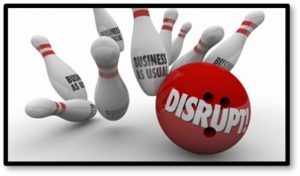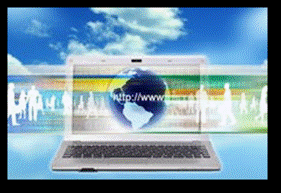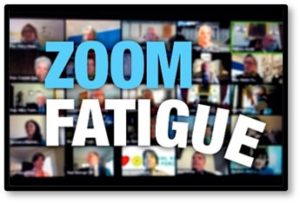Monday Author: Susanne Skinner
Last week I reviewed a session presentation one of my clients is delivering at a virtual conference. It’s an excellent response to how his company is responding to business now being done remotely.
 To paraphrase one of his slides—It is no longer business as usual; it is business that is unusual—we’re finding innovative ways of meeting supply and demand, providing excellent customer service, and managing everything in the cloud,
To paraphrase one of his slides—It is no longer business as usual; it is business that is unusual—we’re finding innovative ways of meeting supply and demand, providing excellent customer service, and managing everything in the cloud,
The term business as usual refers to the continuation of processes and procedures during an extraordinary period or event. It is painfully clear to all of us that there is no such thing right now. Business, along with the way we conduct it, will likely never be the same again.
The Covid Recession
This is not the first time the world stopped and then changed. 9/11 brought massive adjustments to the travel industry. New regulations that seemed drastic nineteen years ago are normal today. The Patriot Act, intended to detect and prevent hostile acts against our country, created heightened levels of security that never lessened.
As social distancing became mandatory to prevent the virus from spreading, businesses were forced to close. Local vendors were unable to sustain the losses and closed for good. Entertainment, recreation and travel felt the biggest loss in U.S. history after the White House declared Covid-19 a national emergency.
Layoffs and furloughs are a harsh reality in most companies. The events and hospitality industries are severely affected. Live events are canceled for the remainder of the year, resulting in massive downsizings throughout marketing and sales organizations.
Even healthcare systems are overwhelmed, lacking the medical supplies and speedy delivery needed for front-line workers.
The traditional way of doing business is gone. A pandemic is forcing corporations and leaders to re-evaluate what we once considered business as usual.
Moving to the Online World
During an economic downturn, income and spending drop, leading to lower revenue. By the end of June, total consumer spending was about 9% lower than it was in January. Travel and related transportation services also tanked as individuals and companies began canceling travel.
 Sheltering in place forced businesses and consumers to move to the online world. Most of us are there in part because we are already online shoppers. But relying on the internet for everything is a paradigm shift for business and the economy.
Sheltering in place forced businesses and consumers to move to the online world. Most of us are there in part because we are already online shoppers. But relying on the internet for everything is a paradigm shift for business and the economy.
As consumers turn from buying in-store to buying online, the fate of brick and mortar hangs in the balance. Major retailers are shuttering stores across the U.S. Some are re-purposing physical spaces, turning them into order fulfillment centers.
Most companies already have businesses online because it reduces the need for investment in infrastructure. But when demand overtakes supply, it compromises availability and delivery. Buyers now wait weeks for a shipment that used to arrive in two days. Retailers are learning the finer points of ecommerce.
Budgets for advertising and marketing have jumped, along with social media presence. It’s an ongoing investment that keeps the brand in front of the consumer.
The New Way of Working
Technology-related companies are the least affected in that many employees are already working from home. Companies that get it have attractive home-based options that mean a lot to job seekers. More importantly, it confirms what we already know—a work-from-home routine decreases employer and employee costs, improves productivity and reduces stress.
 Managers who insisted home-based workers were less effective have been forced to change their mindset. The virus is expected to remain throughout 2021, creating a new norm for companies that must learn to integrate working from home into their business model. A home office keeps the machine running and reduces the probability of contributing to the spread of the virus.
Managers who insisted home-based workers were less effective have been forced to change their mindset. The virus is expected to remain throughout 2021, creating a new norm for companies that must learn to integrate working from home into their business model. A home office keeps the machine running and reduces the probability of contributing to the spread of the virus.
Zoom Fatigue
Our homes are now our offices and our offices are also our homes. We are implementing changes that will forever reshape the working world. It’s a radical way of re-imagining how the workplace functions.
 Online learning and business meetings are being done remotely. Our calendars are filled with Zoom meetings. While these virtual meetings offer an easy way to remain connected, it’s physically and mentally draining. There’s a name for that—it’s called Zoom Fatigue. It also applies to Skype, Microsoft Teams, Google Meet and WebEx.
Online learning and business meetings are being done remotely. Our calendars are filled with Zoom meetings. While these virtual meetings offer an easy way to remain connected, it’s physically and mentally draining. There’s a name for that—it’s called Zoom Fatigue. It also applies to Skype, Microsoft Teams, Google Meet and WebEx.
Video calls require us to stare at a small space on the computer screen and remain alert and engaged. That’s much harder to do than a face-to-face meeting. We have to process body language, vocal queues and tone in 9 x 13-inch window. Other people are looking back at you—after all, everyone’s on camera. It’s business as usual, at least from the waist up.
Overburdened or poor Wi-Fi, frozen screens, software crashes and the occasional child or pet drive-by add another layer of stress. If we’re being honest, we’ve worked hard at setting up our “background” so we look professional. I’ve added seat and back cushions to my office chair and have good lighting.
To ease the burden of a day filled with online meetings, let’s all ask the before-we-send-the-meeting-invite question: “Can this Zoom meeting be handled with an email??” I hear you out there, you’re saying,”Can I get an amen?”
A New Business as Usual
Businesses are being propelled by change rather than choice. Agility and flexibility are two keys to succeeding in the new business as usual model. These are not temporary changes; they are here to stay. Companies that survive are adapting and reinventing themselves. Successful business leaders will not attempt to go back to the old business as usual models.
Why? Because employers and employees are learning how to work smarter.
